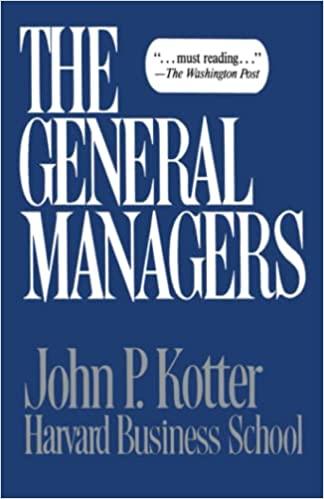Question
Juno Hair Salon is operated by Harry Jung, who has been cut-ting hair for more than 25 years. Harry does not take appointments, so the
Juno Hair Salon is operated by Harry Jung, who has been cut-ting hair for more than 25 years. Harry does not take appointments, so the arrival pattern of customers is essentially random. Traditionally, the arrival rate had been about one customer every 50 minutes. Two months ago, the local paper ran an article about Harry that improved business substantially. Currently, the arrival rate is closer to one customer every 35 minutes. Haircuts require an average of 25 minutes, but the times vary considerably depending on customer needs. A trim might require as little as 5 minutes, but a shampoo and styling could take as long as an hour or more. For this reason, the exponential distribution seems to provide a reasonably good fit for the service time distribution.
Harry's customers had always been patient. After business picked up, some have complained that the wait is too long. Harry is considering taking his cousin Marvin into the business to improve customer service. Assume that Marvin cuts hair at the same rate as Harry.
How much has the quality of service declined since more customers have started using the shop? (You need to write up your analysis to answer this question, not only number).
Step by Step Solution
There are 3 Steps involved in it
Step: 1

Get Instant Access to Expert-Tailored Solutions
See step-by-step solutions with expert insights and AI powered tools for academic success
Step: 2

Step: 3

Ace Your Homework with AI
Get the answers you need in no time with our AI-driven, step-by-step assistance
Get Started


